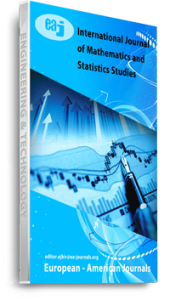This study aimed to investigate the different errors and misconceptions made by students when dealing with linear inequalities. The goal was to uncover the nature and causes of these errors and misconceptions among students in Senior High Schools within the Mfantseman Municipality in the Central Region of Ghana. The research employed an explanatory sequential mixed methods design and was conducted in two public Senior High Schools selected from the Municipality. A total of 180 Senior High School students and teachers participated in the study, including 10 teachers. The sample was selected using a random sampling technique, which yielded 170 students from the two chosen public Senior High Schools. Data collection encompassed results from students’ tests on linear inequalities, interviews with students, and questionnaires given to mathematics teachers. The collected data was coded and analyzed using descriptive statistics. The study’s findings revealed common errors made by students, such as multiplying/dividing by a negative number, substituting inequality symbols with “equal to” symbols, performing operations on only one side or different numbers on the two sides of a compound inequality, as well as errors in algebraic operations, simplification, and arithmetic. Misconceptions observed included confusion between equality and inequality, misconceptions when dividing or multiplying through an inequality by a negative number, and struggles with compound inequalities. Students’ difficulties arose from an inadequate understanding of basic inequality concepts, overgeneralization, limited mastery of inequality rules, and insufficient exposure to compound inequalities. Translating word problems into algebraic symbols posed a significant challenge. The study also highlighted that mathematics teachers were aware of the errors made by students. Consequently, teachers made efforts to address these errors during linear inequality classes. The findings suggest that teachers not only need assistance in identifying errors but also in understanding how errors can emerge during the learning process. One of the recommendations is to enhance teacher education by emphasizing diverse teacher-student interactions that thoroughly consider students’ mathematical ideas. This approach aims to support teachers in effectively utilizing students’ experiences in the learning process.
Keywords: Errors, Knowledge, inequalities, linear, misconceptions

